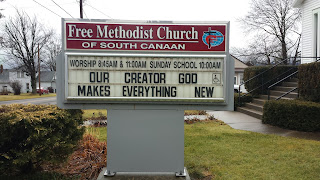A St. Sophrony Story
St. Sophrony of Essex is a newly canonized saint in the Orthodox Church, and I just happened to hear a beautiful account of a miracle he worked from the mouth of the recipient himself. This past weekend, my family and I had the pleasure of traveling down to Washington D.C. to attend the episcopal ordination of His Grace Alexis, Bishop of Bethesda (for the OCA). Because of that event, I was able to meet some incredible new people, and hear this wonderful story about St. Sophrony. Now, this whole story was related to me by a Greek man, who struggled to relate this story in English. So, I will do my best to gloss my understanding of the story into English. "I was driving from the northern part of Greece down to Athens, and that is a very long drive. I was driving on the high-speed highway, when all the sudden, I was hit with vertigo. The road was moving all around; the world was spinning; I had no idea how to drive the car or what to do with the steering wheel. "My first tho
